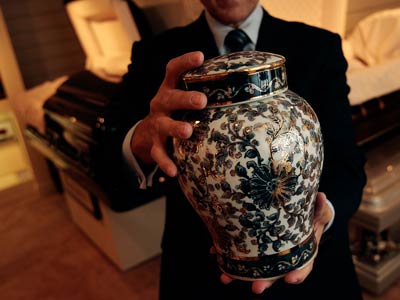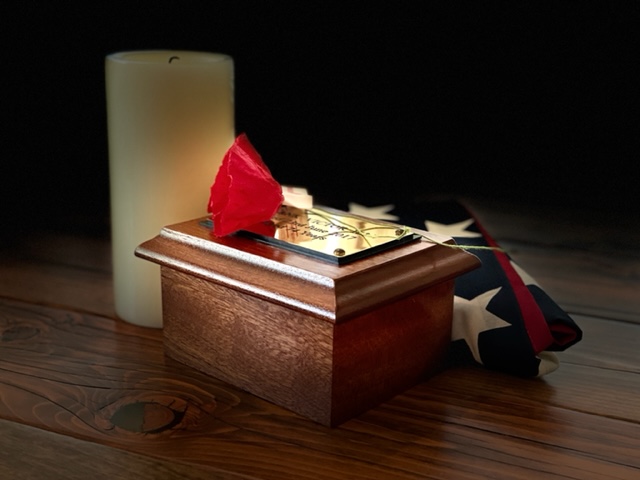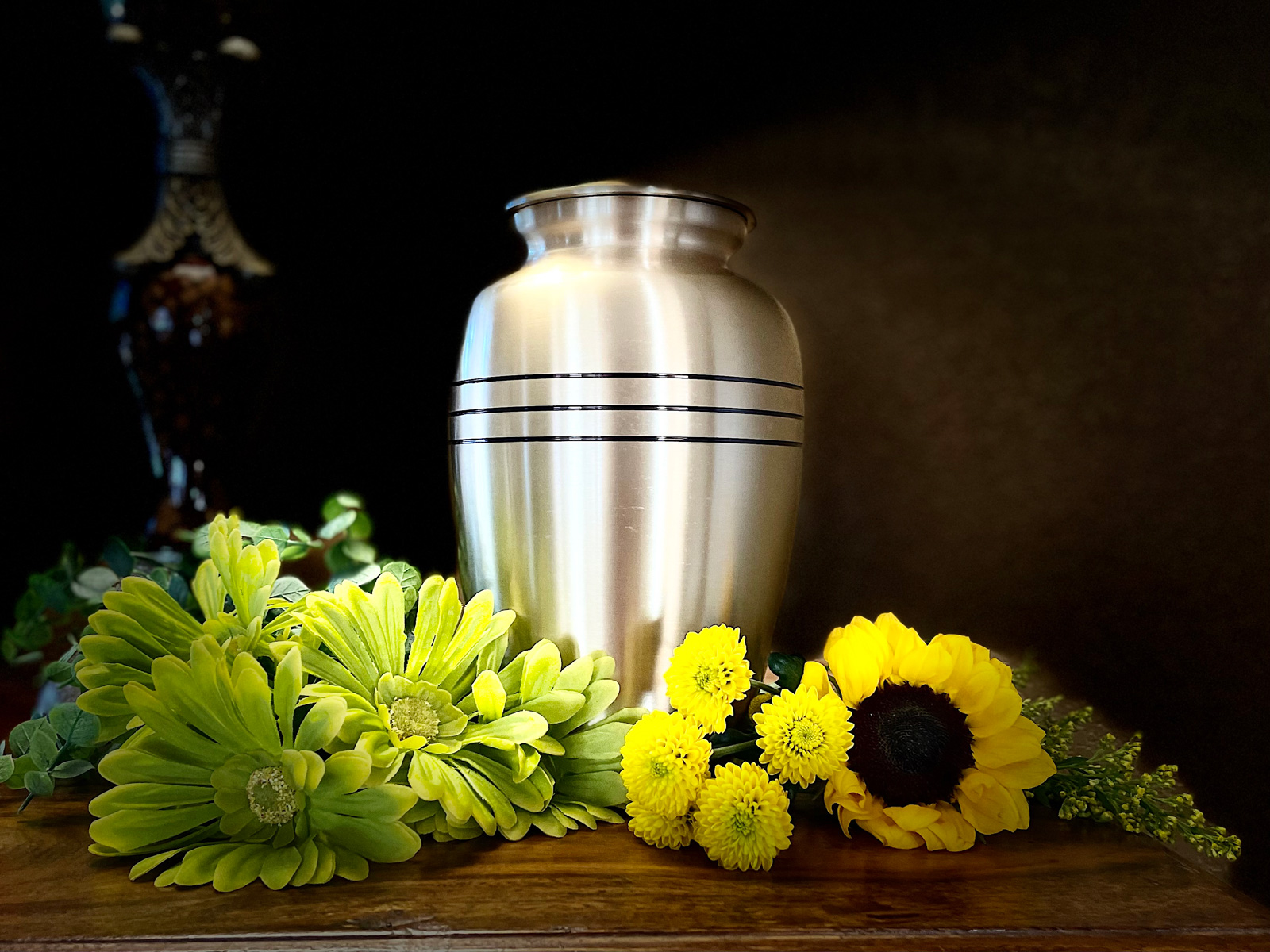The Bible does not explicitly address the practice of cremation. It is more in the interpretation of words of scripture that we can extract any reference to the act of cremation rituals. God does not present any rules about burial or cremation in the Bible. There is no command to bury, and there is no prohibition to cremate.
So, as the Bible does not explicitly forbid or endorse cremation, the decision is mainly up to personal preference, cultural tradition, and interpretation.
Throughout history, religious believers have preferred burial over cremation. Although cremation was more common among Romans and Greeks, Christians soon started to bury their dead, in line with the practice of the Jews.
It is worth noting that there are no verses that prohibit cremation or suggest it is sinful.

Some Christians reference verses like Genesis 3:19 (“for dust you are and to dust you will return”) to support the idea that cremation aligns with the natural return of the body to the earth.
Others highlight that the resurrection of the body, as mentioned in passages like 1 Corinthians 15, is a spiritual transformation that does not depend on how the physical body is treated after death.
Ultimately, most Christian denominations view cremation as acceptable as long as it is done with respect and reverence for the deceased. Even The Catholic Church accepted cremation in 1963, allowing for it under certain conditions but still stressing the sanctity of a final resting place for cremated remains in a sacred space.
Here are some key points regarding the Bible and Cremation:
Burial was the Religious Normal Practice in Early Christian Times.
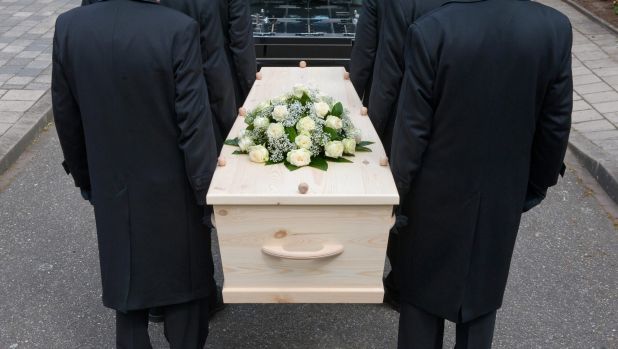
In biblical times, burial was the common practice for disposing of the dead among the Israelites and early Christians. Bible figures such as Abraham, Sarah, and Jesus were buried or entombed.
Several passages describe burials, such as:
Genesis 23:19, where Sarah is buried in the cave of Machpelah.
Acts 8:2, where devout men buried Stephen and mourned deeply for him.
These examples suggest that burial was the culturally accepted method for dealing with the deceased, reflecting respect for the body, which was seen as created in God’s image.
Are there any References to Instances of Burning or Cremation in the Bible?
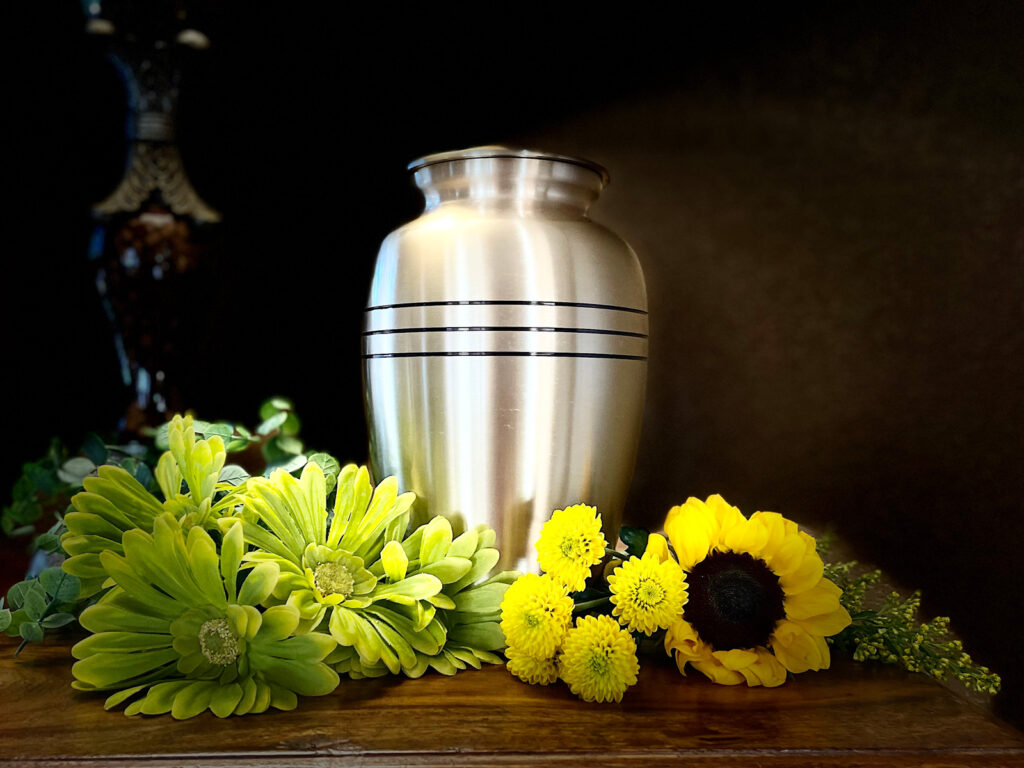
There are a few instances where bodies were burned, but these are not in the context of funeral rites or a cremation ritual:
1 Samuel 31:11-13 describes how the men of Jabesh-Gilead burned the bodies of Saul and his sons to prevent further desecration by the Philistines.
“But when the inhabitants of Jabesh-Gilead heard what the Philistines had done to Saul, all the valiant men arose and went all night and took the body of Saul and the bodies of his sons from the wall of Beth-shan, and they came to Jabesh and burned them there. And they took their bones and buried them under the tamarisk tree in Jabesh and fasted seven days”.
John MacArthur, a renowned Biblical scholar, claims this refers to: “The people deciding to cremate Saul and Jonathan and then bury their ashes because their bodies had been mutilated by the Philistines.”
Amos 2:1 condemns the Moabites for cremating the bones of the king of Edom out of vengeance, indicating that burning was sometimes used as a form of disrespect or punishment.
What are the Considerations of Cremation From a Theological Perspective?

Resurrection of the Body: Is it Okay to Cremate a Human Body?
The Christian belief in the resurrection of the body might have historically contributed to a preference for burial over cremation, as seen in early Christian writings. However, modern theological discussions within Christianity (including Catholicism) have clarified that cremation does not preclude resurrection.
Any buried human body will decompose. It is just a much slower process when a body is buried. In that way, cremation is not an anti-resurrection practice, as it merely accelerates the oxidation and decomposition of the body to carbon molecules.
John McArthur explains it as:
“The believer will one day receive a new body (1 Corinthians 15:42-49; 1 Thessalonians 4:13-18; Job 19:25-26), thus the state of what remains of the old body is unimportant.”
Respecting The Body as a Temple
The idea that the body is a temple of the Holy Spirit (1 Corinthians 6:19-20) might have influenced the cultural preference for burial, ensuring the body is treated with respect until the resurrection.
Cultural Context of Practices of Death in the Bible
The practices around death in the Bible were influenced by the cultural and religious norms of the time. The absence of direct commandments or prohibitions against cremation suggests that the method of body disposal was not a central doctrinal issue but rather a matter of cultural practice.
Is Cremation Right as a Final Disposition for a Christian Believer?
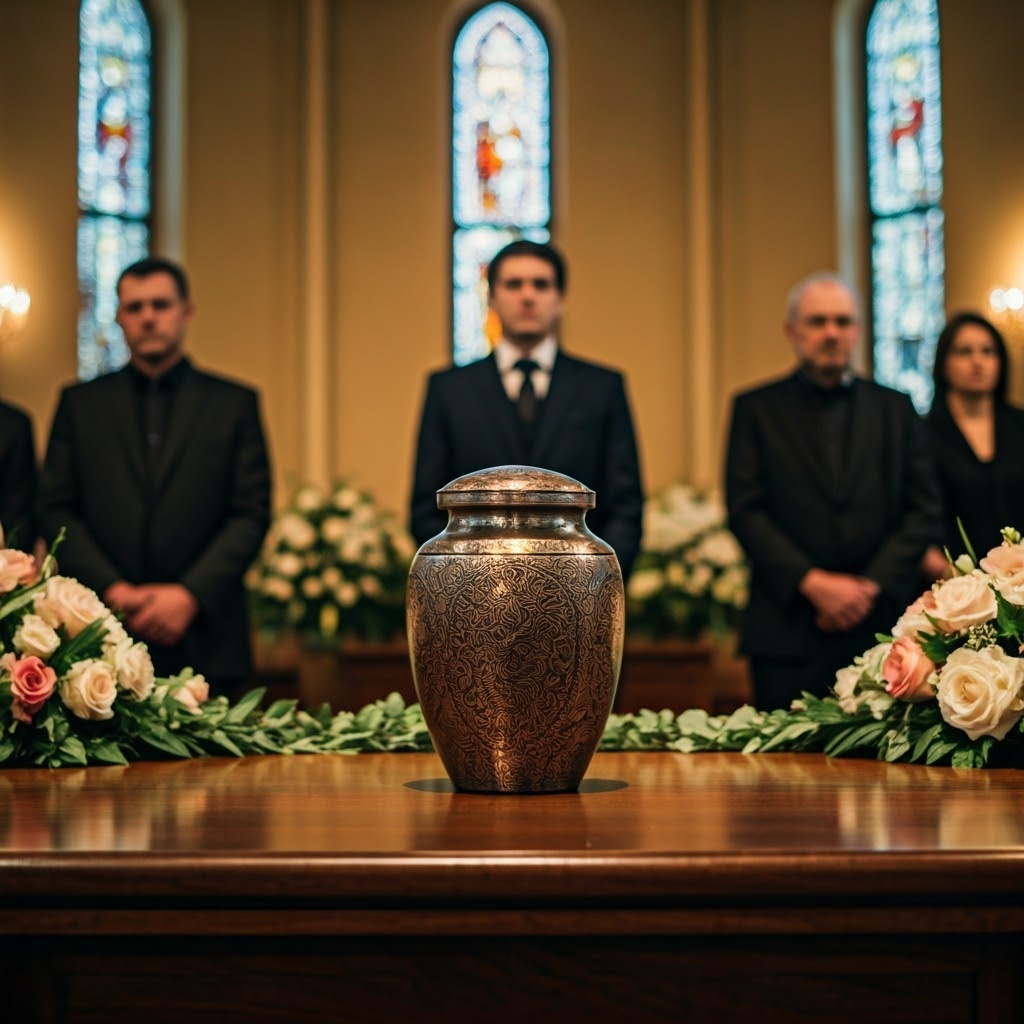
The Bible did not prohibit cremation, and the Catholic Church allows it. Deciding whether it is the right final rite for your own body can be very much a part of personal values and shared cultural practice.
Most Christians think of the ‘final passage’ as a ritual involving a funeral service and, in some cases, graveside burial. This all involves the presence and interment of a physical body.
However, it is acceptable to conduct a religious service without a body present. Today, memorial services or celebration of life rituals have replaced traditional funeral services when a cremation is performed. A memorial service can be conducted with or without the cremated remains in attendance.
Or, some Christians opt to hold a formal funeral service and then have the body cremated after the religious ritual. Cremation offers more versatility in how we conduct death care rituals.
Not only is cremation more versatile, but it can save thousands of dollars on the full cost of a traditional burial funeral. This is a significant reason why even devout Christians are choosing cremation today.
Find a Local Affordable Cremation Provider to Check Prices Near You ->
Do People Still Go to Heaven if they are Cremated?
This is a concern for some Christians, as the notion of an afterlife and joy in heaven can be a sustaining principle of the soul living on in an ethereal form for eternity.
According to the bible and scriptures, the soul never dies, and when a believer accepts Christ as his or her savior, it is the soul that receives eternal salvation and not the earthly body.
Also, when a person passes, they no longer have control over what may happen to their body. Often, others are left to make that decision, and a decision could be made based on practical finances rather than religious concerns.
Therefore, if cremation prevented a person from going to heaven, another person could determine an individual’s eternal destiny. This would contradict the Holy Scriptures and the Christian belief that everyone controls their spiritual destiny.
An eternal destiny based on their own personal belief in Jesus Christ, not what others may decide to do with their bodily remains after their death.
Is Cremation Considered a Sin?
There is no biblical command that dictates that cremation is sinful. If a body is cremated, it is totally possible for God to resurrect that body. He can resurrect a body damaged in warfare or delimbed by a fatal accident.
We are told that God created man (Genesis 1:27). Therefore, God is equally able to raise a person’s remains that have been cremated as he is the remains of a person who was not cremated.
The question of whether burial or cremation is an acceptable death care option is within the realm of Christian freedom, and cremation is not considered a sin.
So, In summary:
While the Bible does not explicitly endorse or prohibit cremation, the context of the scriptures shows a preference for burial. Modern Christian denominations have varying stances on cremation, with many accepting it as long as it does not reflect a disbelief in resurrection or disrespect towards the body. Each denomination might interpret these biblical cues differently based on its theological framework and cultural context.
Find a Local Affordable Cremation Provider to Check Prices Near You ->

